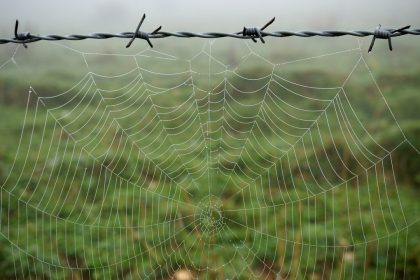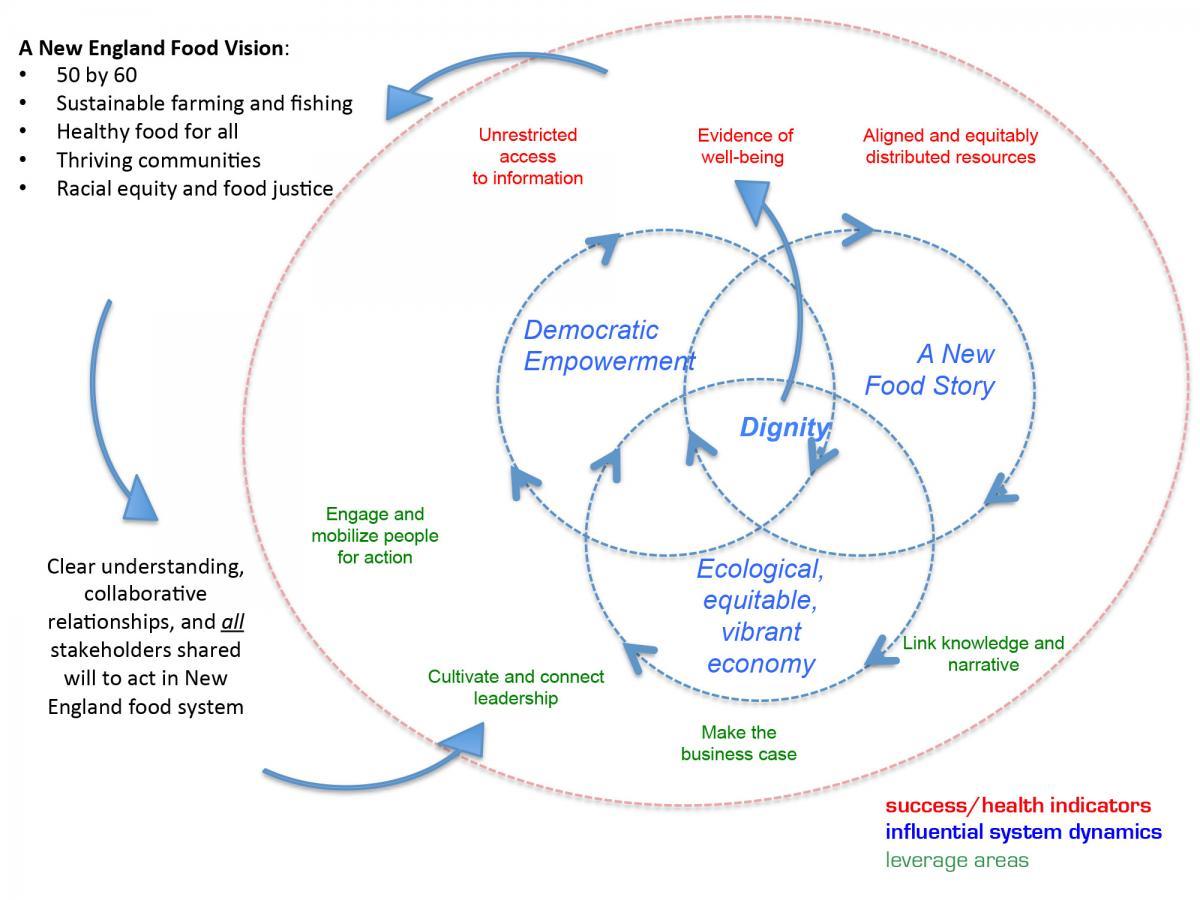
This article, by Curtis Ogden, orginally appeared on the IISC blog.
“We are the living conduit to all life. When we contemplate the vastness of the interwoven network that we are tied to, our individual threads of life seem far less fragile.”
– Sherri Mitchell, from Sacred Instructions

Photo by Marie Voegtli, “network” shared under provisions of Creative Commons Attribution License 2.0.
Last week, we wrapped up the third annual Food Solutions New England Network Leadership Institute. For three years, we have been partnering with FSNE to cultivate and connect people in this region where IISC is based, who are committed to supporting the emergence of just, sustainable, collaboratively stewarded and self-determined food futures for all who live here. This network and leadership development initiative grew out of system mapping that FSNE undertook to identify four main areas of leverage to shift extractive, oppressive, oligarchic and life-depleting patterns of the dominant food system.

From the start, we and our partners at FSNE (including the backbone team at the University of New Hampshire Sustainability Institute, the FSNE Ambassadors, and members of the FSNE Process Team) knew that the main value of any kind of leadership development program would be in the people that came together and the relationships they built with one another. From there, we were interested in creating opportunities for those involved in the program to cultivate connections with other values-aligned change agents in the region. In addition, we looked at giving people an experience of different and diverse places in our region (rural, urban, coastal) and to see their work in a regional context. Lastly, we wanted to offer an opportunity for participants to hone their skills as collaborative/network leaders and equity champions.
Here is our working and ever-evolving definition of network leadership:
Network leadership operates from the understanding that connection and flow is fundamental to life and liveliness and that the nature and pattern of connection in a system underlie its state of health (including justice, shared prosperity and resilience). Network leadership strives to understand, shift and strengthen connectivity; facilitate alignment and resource flows; and create conditions for coordinated and emergent action in the direction of greater health and belonging at different systemic levels.
All of those commitments have remained consistent through the three years of the Institute. Each year we have surveyed the current cohort at the end of the program and taken suggestions for ways to improve the experience. Here is a list of seven additions and enhancements in this third year that really seemed to tap the potential of this initiative (knowing that as long as it lasts, it will always be a work in progress):
- We made a more concerted effort to create open space for the cohort, both through longer meal times and breaks, and also to create dedicated time for the group to suggest and explore topics of interest to them. This supported the self-organizing impulse that is often left latent in many groups. And we heard that the group loved the emergent and enlivening quality of this time!
- We dived more deeply into fisheries and fishing as a key component of the region’s food past, present and future. Often the default in many food system conversations is to farming and we thank our colleagues at the North American Marine Alliance and Eating With the Ecosystem for reminding us that the story of the consolidation of fisheries and the denial of indigenous fishing rights has much to tell us about what ails the existing system and what alternatives would constitute a just and sustainable future.
- Related to the above, we integrated a more robust field visit into our second (of three) 3-day gathering, which has held in Maine – a visit to the Portland Fish Exchange and to the offices and urban gardens of Cultivating Community. And we are thinking about ways of doing other field visits in the future that might highlight the status of and creative responses to the dairy crisiswhen we are in Vermont and to take a closer look at community-level food systems and their connection to food sovereignty when we are in Hartford, Connecticut.
- Speaking of sovereignty, we also were grateful and graced to have indigenous presenters in each part of the region we visited who generously welcomed us, shared their history, food ways, wisdom and political struggles. This included a delicious “decolonized dinner” prepared by Wampanoag chef Sherry Pocknett. Overall, FSNE is making a more concerted effort to connect with and appropriately support the self-determination of indigenous peoples in our region.
- We did a better job this year of integrating the influential “core loops” that we want to energize in the regional food system. Most notably, we had a wonderful presentation by Lisa Fernandesabout the power of narrative and elements of the emerging FSNE New Food Narrative.
- Over the last two years, we have integrated members of the previous cohorts as presenters and resources. For example, previous cohort members led explorations of fisheries and urban agriculture and gave presentations/participated in breakout discussions on food justice and food sovereignty campaigns. Connecting across cohorts (network bridging) has been very galvanizing and led to the call to have some kind of summit of the 50 + participants in the program to date.
- Lastly, we have done a better job of threading conversations about work for racial equity and liberation more consistently throughout the Institute’s three sessions and nine days. While we typically do a deeper dive into equity skill-building on the second day of the second session (day 5), conversations about racism, white supremacy, and internalized oppression began showing up on day one and continued through storytelling, discussion/reflection prompts, panel presentations, breakout sessions and site visits.
Conversation has already begun about next year, bringing all of the cohorts together and also creating structures for more robust peer support and a training of trainers. Stay tuned …
“Nobody, but nobody
Can make it out here alone.”
– Maya Angelou




